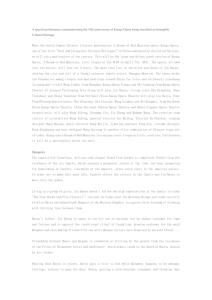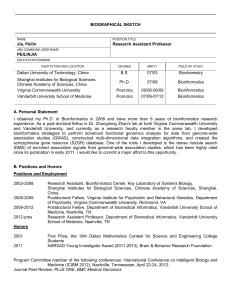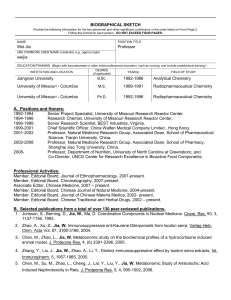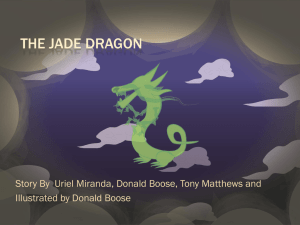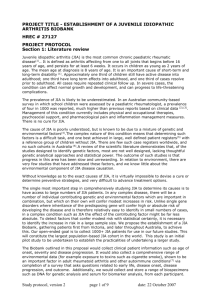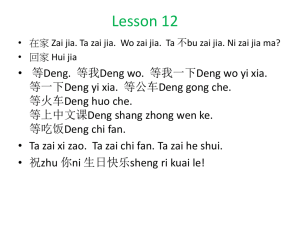Cao Xueqin's Story of the Stone: Themes & Discussion
advertisement
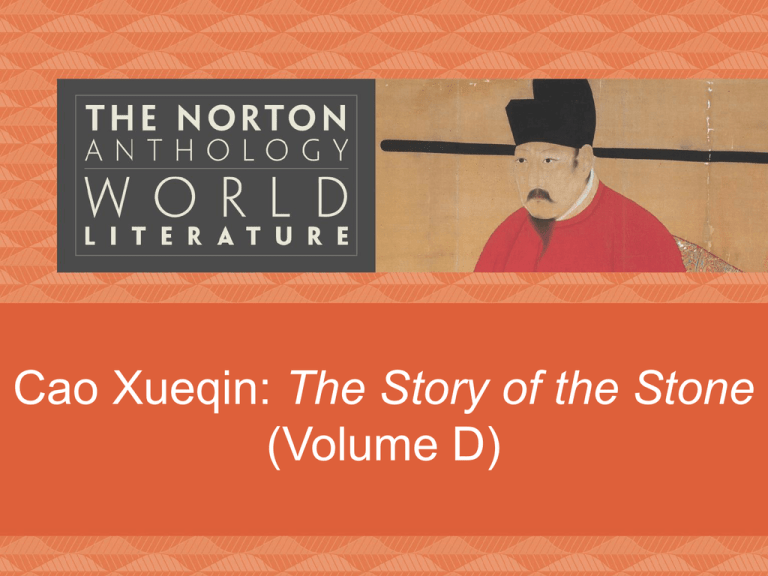
Cao Xueqin: The Story of the Stone (Volume D) Cao Xueqin The image is a statue of Cao Xueqin in suburban Beijing. Qing Dynasty Qing Dynasty ruled China until the Republican revolution of 1911. Qing intellectual culture rejected the radical individualism of the later Ming, when personal freedom had been celebrated at the expense of social responsibility. They treated sacred texts as historical documents. Confucius • Jia Baoyu has little interest in learning the Confucian Classics. • moral education: poetry both as a beautiful thing that pleases humans and as an instructive, serious source of knowledge and understanding • Daoism - the reluctance to commit his ideas to writing may show Confucius’s Daoist thinking, which sometimes doubts the reliability of written and spoken words • Classic of Poetry - Confucius importantly emphasizes proper thought and encourages all moral learning through study of the Classic of Poetry. Dreams versus Reality Dreams versus Reality • The family name, “Jia,” is a homophone for a Chinese word meaning “false,” while “Zheng,” the name of another prominent family in the novel, is a homophone for “real.” • Pay attention to the interplay between the fantasy frame narrative and the realistic main narrative. Prospect Garden • What other important gardens in Literature can you recall? Prospect Garden • Gardens offer refuge from the rest of the world. • The Prospect Garden serves this function, as it is a place of refuge for Jia Baoyu and his female cousins. It is a place in which Jia Baoyu can play with his cousins and engage in his love of poetry and art without the disapproving interference of his father. • It represents a liminal space between the “real” world and the metaphysical world that Jia Baoyu and Daiyu come from. Jade Symbolism • Jade represents nobility, beauty, grace, and purity. • Due to its connection to beauty, jade is typically a symbol associated with women, so it is appropriate that the effeminate Jia Baoyu is born with a piece of jade in his mouth left over from the magical jade stone that he originally was. • Both Jia Baoyu’s and Daiyu’s names are derived from the Chinese word for jade, “yu,” which is also a pun on the word for desire, prefiguring Jia Baoyu and Daiyu’s romance. Discussion Questions In what ways does Jia Baoyu challenge traditional ideas about gender and sexuality? Discussion Questions Why does the author frame an essentially realistic story with the fantastical story of Jia Baoyu being born from a magical stone? What does this add to the novel?

